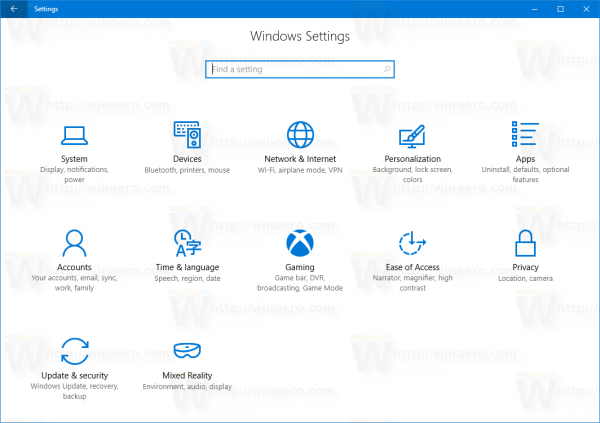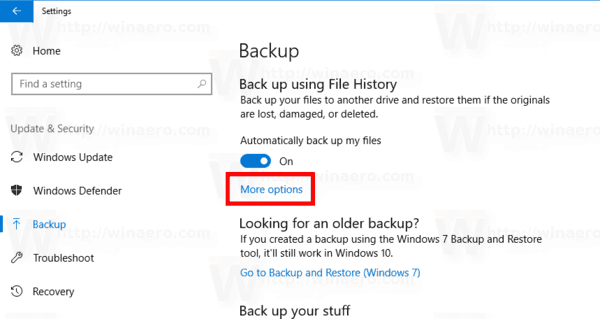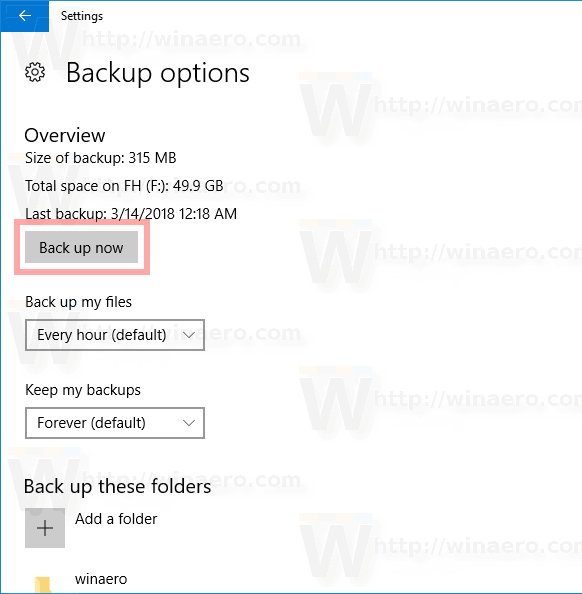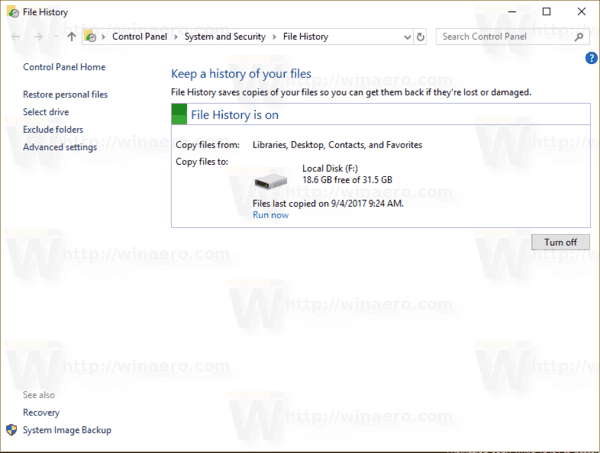File History is a very useful feature of Windows 10. It allows you to create a backup of the important data stored in your Documents, Pictures, Music, Videos and Desktop folders. You can specify the drive where you plan to store your backup. It will prevent data loss in case something goes wrong. In this article, we will see how to manually create a file history backup in Windows 10.
Advertisеment
Windows 10 comes with a built-in backup system called "File History". It allows the user to create a backup copy of files stored on your PC. There are a number of use cases for this feature. For example, it can help you to transfer your files from an old PC to a new one. Or you can use it to backup your files to an external removable drive. The File History feature was first introduced in Windows 8, and has been improved in Windows 10. It allows browsing and restoring different versions of files.
File History requires using the NTFS file system. File History relies on the journal feature of NTFS to track file changes. If the journal contains records about changes, File History includes the updated files in the archive automatically. This operation is very fast.
File History automatically creates backup versions of your data on a schedule to a drive you select to save to. You can create a new backup manually.
To manually create a File History Backup in Windows 10, do the following.
- Open the Settings app.

- Go to Update & Security -> Backup.
- Click on the link More options on the right.

- On the next page, click on the Back up now button.

You are done!
File History will create a new backup of your files from folders you have added.
Alternatively, you can use the classic Control Panel app for the same.
Create a File History Backup with Control Panel
- Open the classic Control Panel.
- Go to Control Panel\System and Security\File History. It looks as follows (the screenshot below is from Windows 10 build 16299):

- Click on the Run now link under your selected drive.
- File History will create a new backup of your files from folders you have added.
Once finished, you can close the File History Control Panel applet.
Related articles:
- How to Enable File History in Windows 10
- Delete Older Versions of File History in Windows 10
- How to Reset File History in Windows 10
That's it.
Support us
Winaero greatly relies on your support. You can help the site keep bringing you interesting and useful content and software by using these options:
